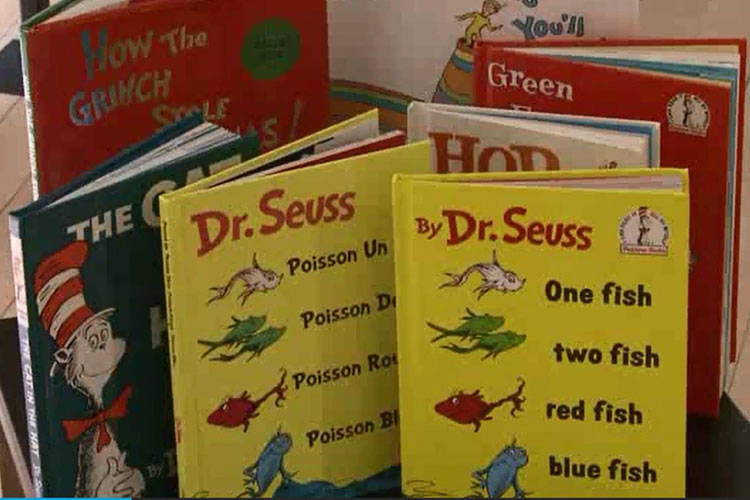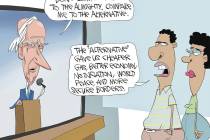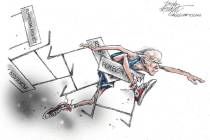CLARENCE PAGE: Don’t drag Dr. Seuss into your culture war
Dr. Seuss and Potato Head may not seem the same.
But don’t load “cancel culture” with all of the blame.
Forgive me. That moment of mangled poetry is inspired by the overblown uproar from right-wing politicians and media to the news that, as Fox News’ Martha MacCallum put it on her morning show this month, bestselling children’s book author Dr. Seuss was “quite literally being canceled.”
Well, no, not quite. The Thought Police have not come marching their jackboots into bookstores and libraries to snatch the beloved works of Theodor Seuss Geisel, known as Dr. Seuss, off the shelves like the Grinch who stole Christmas.
In fact, it was Dr. Seuss Enterprises, the actual caretaker of the late author’s legacy, not its detractors, who decided to discontinue six of his more than 60 books because of caricatures that “portray people in ways that are hurtful and wrong.”
Days earlier, toy giant Hasbro announced a marketing decision to rebrand its iconic Mr. Potato Head to simply Potato Head, which brought backlash from conservatives fearing some sort of society-wide assault on gender norms. They also raised false charges that Disney was “canceling” its streaming of “The Muppet Show,” when it was including only warnings of “negative depictions or mistreatment of people or cultures” on 17 episodes.
Nevertheless, I have to say that I was among those who were disappointed by the Dr. Seuss announcement. To my chagrin I noticed that the six discontinued books include “And to Think That I Saw It on Mulberry Street,” first published in 1937 and, to my vivid recollection, my first favorite book.
Ah, say it ain’t so, I thought. I was a mere first grader when I spotted the book in the “second grade” shelves of our school library. I was immediately smitten by its amusing artwork, the allure of the mysterious “It” in its title and the way the book’s narrative captures the sense of mystery, curiosity and imagination that later evolved into an attraction to journalism.
The story follows Marco, a young boy on a walk home who, page after page, dreams up an increasingly elaborate account of the people and vehicles that he supposedly sees on his way home. He wants an impressive story to tell his father when he gets home. However — spoiler alert! — when he gets home he decides instead to tell his father what he actually saw: a simple everyday horse and wagon.
But now, I wonder, has “Mulberry Street” reached the end of the road? I now know that Geisel, who died in 1991 at age 87, heard numerous complaints about one of the book’s many characters, described as “a Chinaman who eats with sticks.” Seuss responded. He changed the text to “Chinese man,” edited out the man’s long pigtail and whitened his yellow skin color.
Elsewhere — and closer to home to me as an African American — are objections to another discontinued book, “If I Ran the Zoo,” which was published in 1950 and includes caricatures of big-lipped “Africans” who are drawn shirtless and shoeless and wearing grass skirts.
I won’t miss it.
Inside “The Sneetches,” “The Zax,” “Too Many Daves” and “What Was I Scared Of?,” among other stories, you can find messages of tolerance, acceptance, respect and other virtues that have won international praise from educators. So I don’t only fault Seuss for reflecting the racist standards of his times. I also give him credit for trying to improve them.
Contact the Chicago Tribune’s Clarence Page at cpage@chicagotribune.com.




























